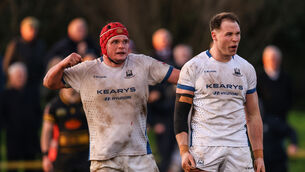The Big Interview: No small pond thinking in open water for Chris Bryan

n one of Chris Bryan’s many personal journals, there’s something Paul O’Connell has said that he’s jotted down and worked into a personal affirmation.
“Like Paul, I am the one who can push further. I want it more than anyone else. I am a workhorse. When the shit hits the fan, I’m your man who can deal with it.”














